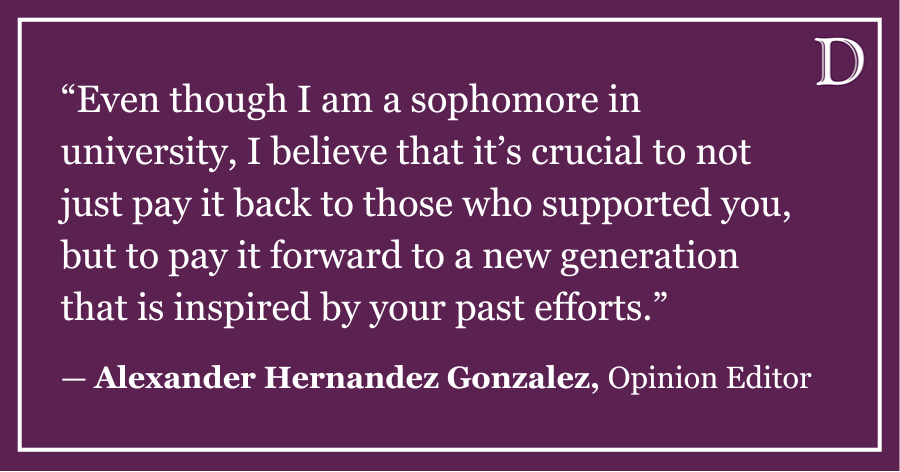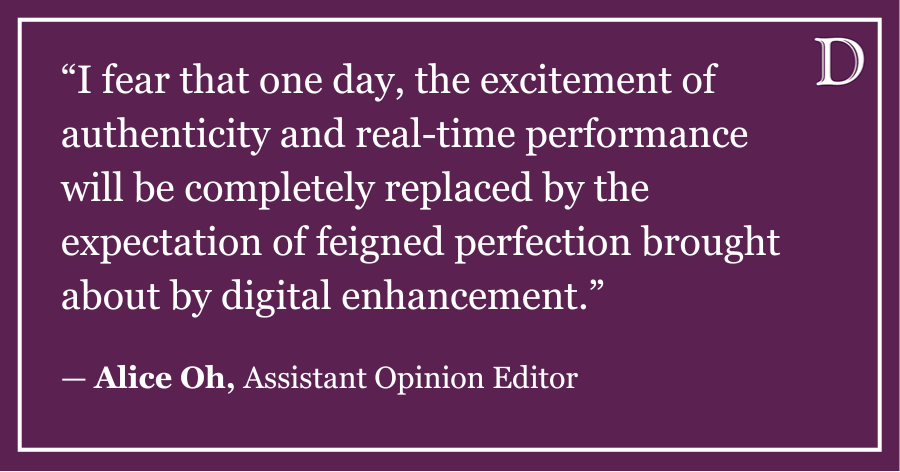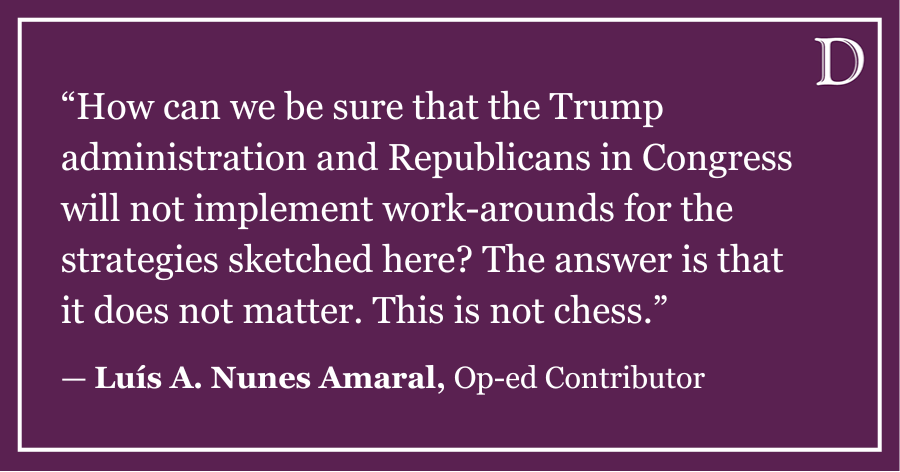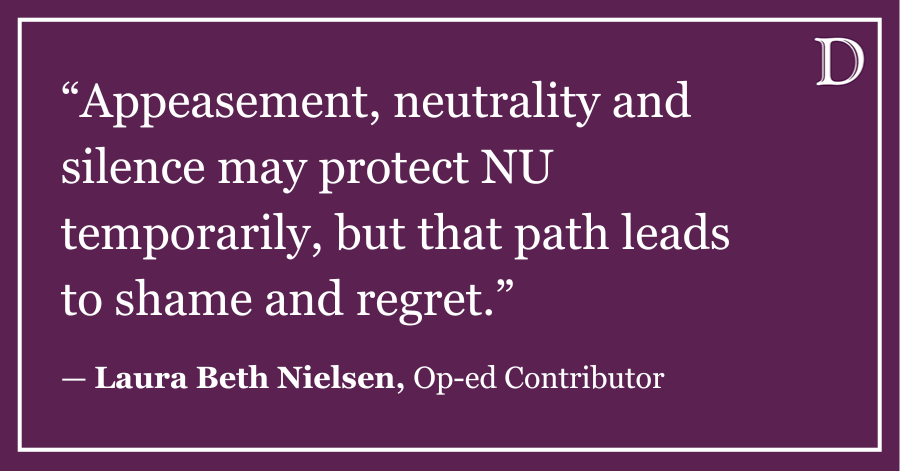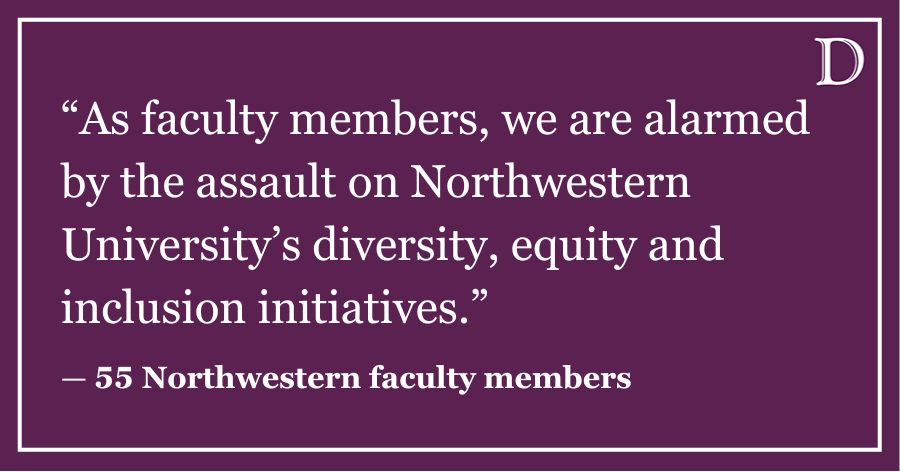Here at Northwestern, everyone is busy. Everyone’s involved in about 30,000 activities, has around 30 executive positions, and is constantly on the go. About a week ago, I almost had to make a Doodle just to figure out when two of my friends and I could hang out. We laughed at how ridiculous that idea was. Then we actually did it.
But being busy doesn’t mean we need to be unpleasant.
Every time I walk down Sheridan Road, I pass at least 10 people I know. You’d think I’d stop and say “hi,” or even just smile or wave while passing them. But a lot of times, I’m so engrossed in my thoughts, worrying about where I have to be or what I have to do next, that I don’t bother acknowledging them. And I’ve noticed that a lot of people do the same.
But a few days ago, I started making it a point to slow down and notice the people I’m passing on the road or between classes. It’s partly due to the nice weather. It’s also partly a random decision I made. The point is, it’s made me realize something.
When I smile at someone, even if it’s someone I don’t know, it makes me feel good. It doesn’t matter if they smile back, or if they didn’t see me; the act of smiling seems to improve my mood exponentially.
I wasn’t sure if this was all in my head, so I decided to research it a bit. I expected to find a ton of information online about smiling. What I didn’t expect to find was a great deal of research about what smiling does for the person who is smiling.
Darwin was the first to introduce this idea, which became known as the “facial-feedback hypothesis.” Since then, researchers have studied the relationship between facial expressions and emotions in great depth. Most studies show a correlation between your ability to smile and how happy you feel.
OK, I thought, there is a ton of science behind this. How does it apply to NU?
So I contacted Prof. Susan Hespos, an associate professor and director of graduate studies for cognitive psychology at NU. I asked if she knew of someone who had done any research on a correlation between smiling and amounts of happiness — if such a thing could be measured quantitatively. She directed me to contact Kathryn Gigler and Yangqing Xu, two graduate students in the Department of Psychology, who are co-teaching a class on Research Methods with her this quarter.
Kathryn, who goes by Kati, explained to me they had just conducted a study on how likely each gender is to return a smile, based on the gender of the “smiler.” Although this study didn’t focus on my primary interest, it did reveal something rather upsetting. Many of the subjects refused to return a smile, and a significant number of students “darted their gaze away to avoid eye contact.”
It makes me sad to realize that so many of us think we’re too busy to take a second out of our day to smile to a fellow student on the street.
This isn’t a new concept. There have been tons of articles and columns to NU students, by NU students, encouraging each other to smile, wave and be more open and friendly to others on campus, or just to people in general.
Why isn’t this changing? We’ve been talking about this so much in light of recent events; we all need to come together and be One Northwestern. I guess it’s hard for us to figure out just how exactly to do it.
If we want to make a change, any change, in our community, the best way to start is with a small step. Maybe we can start smiling at at least five random strangers a day — it’s small, but if even a quarter of Wildcats start doing it, maybe we’ll encourage the other three quarters to do it, just by showing how great it makes us, and people around us, feel.
So I’ll end this column with a dare; smile at at least five random strangers today, and comment here on how it goes. I can almost guarantee that you’ll feel the difference, and that you’ll keep doing it in the future.
Meera Patel is a McCormick sophomore. She can be reached at meerapatel2015@u.northwestern.edu. If you want to respond publicly to this column, send a Letter to the Editor to opinion@dailynorthwestern.com.



